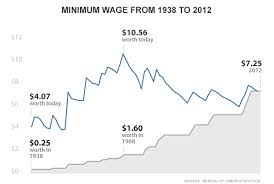Let States Decide Minimum Wage
< < Go Back
 If Americans want to increase the minimum wage, it should be done at the state and local level, says Merrill Matthews, a resident scholar with the Institute for Policy Innovation.
If Americans want to increase the minimum wage, it should be done at the state and local level, says Merrill Matthews, a resident scholar with the Institute for Policy Innovation.
The United States saw its first minimum wage in 1938 as part of the Fair Labor Standards Act (FLSA). But the minimum wage is poor economic policy for two reasons: the least-skilled workers (who are disproportionately minorities) are priced out of jobs, and the law places price controls on labor. With a government-mandated labor price, employers may decide not to hire workers or to use technology to do the work instead.
Moreover, states and cities and industries vary widely, and an employer in San Francisco, for example, may be willing to pay a much higher amount for workers than would his counterpart in Mississippi. With such variation, it makes much more sense to allow states to decide their own minimum wages. A nationwide minimum wage will likely only be ineffective or damaging.
> A federal minimum wage that is actually high enough to help people in expensive states would be so high that it would hurt low-skilled workers in low-cost states.
> Similarly, a minimum wage set low enough so that it does not hurt workers in low-cost states would do little to help employees in high-cost states, because so many already make that minimum amount, if not much more.
The federal government should stay out of the minimum wage debate and leave those decisions to states and cities.
More From NCPA:



